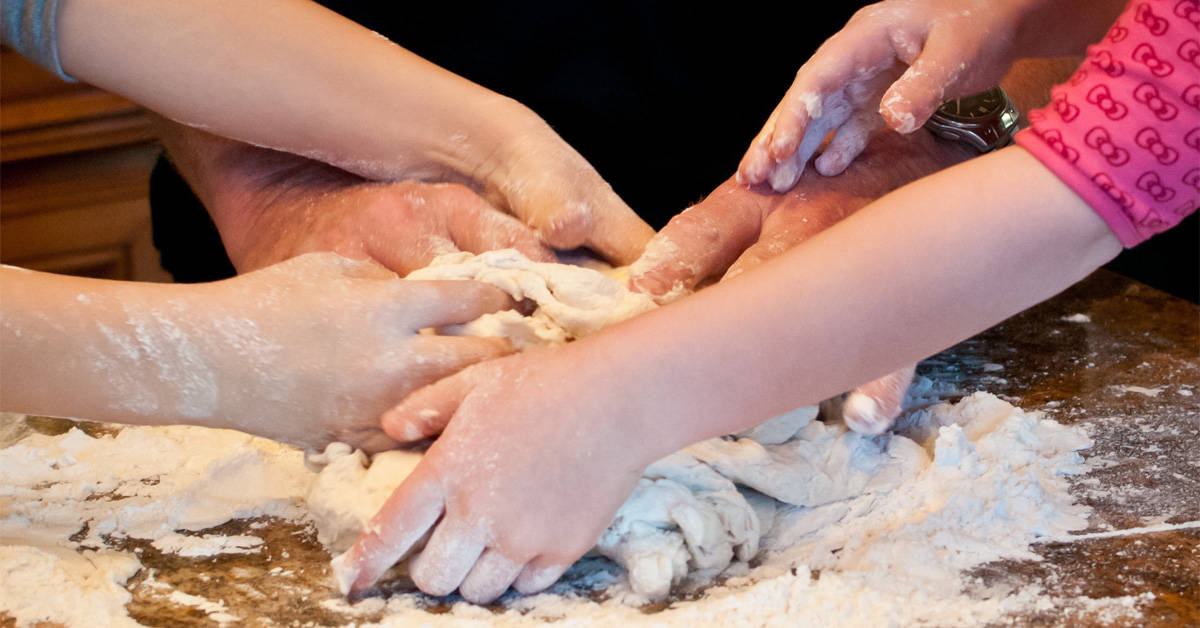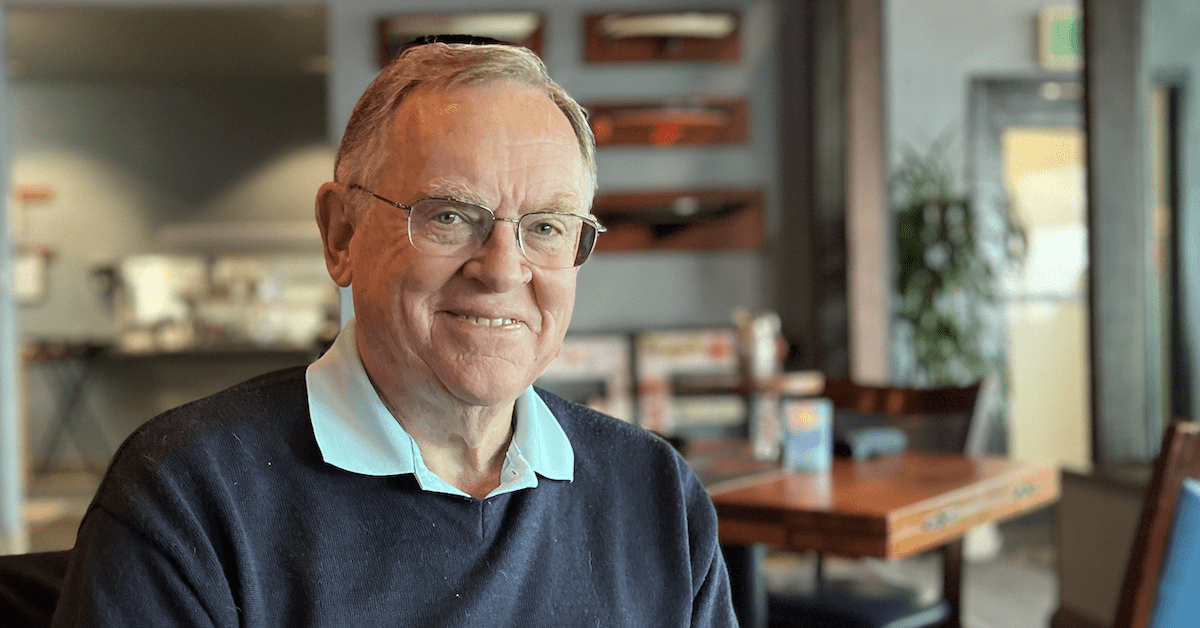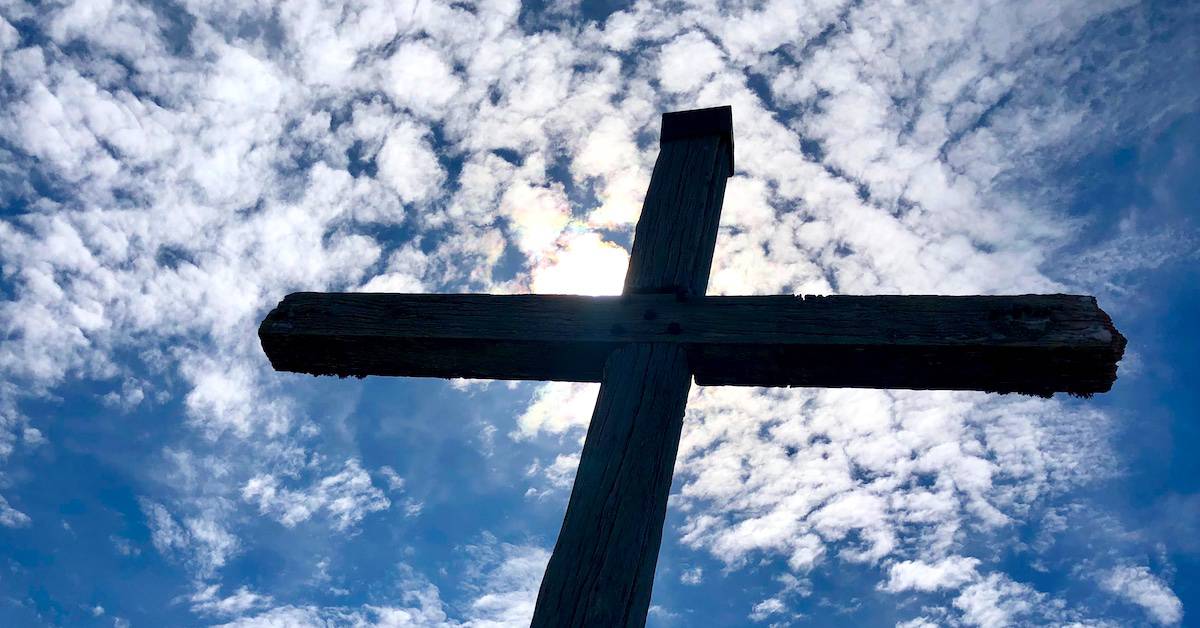“They led me into a relationship with God that I’ve only dreamt about.”
I can’t tell you how much those words mean to me. That’s the reason for all the writing and podcasts I have done over the years, so that someone else can find their way into an intimate connection with God that changes the trajectory of their lives. I love reading those words; they make my heart soar. That’s the hunger God has put deep inside us and what religion so often fails to let us experience.
I also get emails from those who say they cannot sense his presence or recognize his love for them even though they have sought it over many years. I hurt with them as much as I rejoice with those who do find that connection. I don’t think God is at fault here, nor that the person seeking is unworthy in some way of him. I have come to conclude that it is not as easy a connection to make as many have been led to believe. Indeed, God is doing everything from his end. But so much from our end makes it difficult—misplaced expectations, unresolved trauma, delusions of darkness, not having someone who can help, and trying to find him through self-effort and discipline.
However, I have seen God overcome all these things for people who had almost given up hope. It takes a lot to relax enough on the inside to affirm what Father is already doing to make that connection with us. No matter how desperately we try, we can’t be disciplined enough or knowledgeable enough to earn our way into it. This relationship is a reality we relax into, a gift that Father gives as we make ourselves available to him. Keep letting your heart lay before him, and be patient as he makes these connections. And don’t be afraid to get help from those you know who are finding their life in him.
The email I quoted above came from a young woman I first met before she was in high school as I shared some time with her family in New England. You have no idea what it meant to me that she would write and touch on so many things that I also want to share with you. I received it after Sara and I returned from Hawaii to celebrate our upcoming anniversary and all God has done this last year. We had a beautiful time together and even spent a day in Honolulu with a congregation that has been studying He Loves Me. What a day with the people there! I love those conversations so much, and having Sara in them, sharing from her journey, makes them all that much sweeter.
And the time Sara and I had alone together was so precious, and I would say even sacred, for reasons I share on the podcast this Friday.
But let me share this email with you as we discover what helped her make that connection. Also, I want to respond to it with some information I think others will enjoy as well. So much of what she wrote to me touches on the critical things in my life these days and some things I would love to update many of my readers.
First, I want to thank you both for sharing your story over this past year. I know sharing it has changed the lives of many in such an incredibly positive way.
Sara’s courage to share her story and its impact on our marriage has borne incredible fruit worldwide. Her vulnerability opened a wide door for others to deal with long-buried trauma in their own lives. We are continually amazed and blessed by the emails we receive and the conversations we have with people taking a serious look at the brokenness in their lives and seeing where Jesus might be in it for them. And if her story encourages you to lean more closely into Jesus to heal some unresolved trauma, that’s awesome. Be patient with the process. It is scary. It may take a while, but the rewards of freedom are worth every bit of it.
I’ve been listening to your podcast along with the My Friend Luis podcast since 2021 and it’s led me into a relationship with God that I’ve only dreamt about. So thank you for that!
If you’ve not listened to the My Friend Luis podcast or stayed up with our Redeeming Love story at The God Journey, you might want to go back and catch those. They helped her make that connection, and hearing stories of how God has connected with others can help us recognize him in our own story if we don’t try to get him to do it the same way with us as he did for them. They are two powerful stories of God intervening in dark places in very different ways to unfold his glory and bring his freedom. We all have a story like this going on in our own hearts, and I love that these were catalysts for this young woman to find the relationship she dreamed about.
I realize I have updated you on Luis for some time. I will write more in an upcoming post, but you can rest assured that Jesus continues to engage him over some of the residues of his past and draw him into greater freedom. He continues to work with young men and women, helping rescue them from trouble and offering them a life lived in Jesus’s love. His application for amnesty and legal status in the U.S. is still pending. This is a laborious process. Your prayers and support for his work with at-risk youth are deeply appreciated.
Like Sara, I have a playlist of songs on my phone from over the years where I felt a connection with a lyric or lyrics. I was recently questioning whether those lyrics that were speaking to me were actually God or just in my head. The next day, I was listening to your podcast, and Sara shared the lyrics that have recently connected with her. I guess I got my answer.
I’m glad you did. I love the creative ways God speaks to us—through song, Scripture, conversations, nature, and inner thoughts. Song lyrics can powerfully mirror the insights he wants us to see. Sara has a twelve-year song list that reflects God’s thoughts to her through this season of her journey. It’s spectacular, and each is an excellent reminder of his truth as it continues to win her heart over the illusions of trauma. For those still seeking this connection, discover how God is making himself known to you and explore him there. He may be using unconventional ways to open your heart to his reality.
About a month ago, I had a dream that God opened a window for me to look through and I saw a beautiful landscape with golden colors and trees. Next to the window there was writing that described it as The Garden of Eden and God said, “It’s time.” Since then, I have felt God’s presence significantly more than I ever have in my life. From sitting with this for a while, I think it may also relate to the it’s time that you heard in regards to God’s children being revealed.
Her words were such an encouragement to me, and I hope to you. We will revisit these words, as I did in a recent blog. Nothing is more critical now than people learning to embrace an affection-based relationship with God that transforms them so that they reveal his glory in the world without trying. For too long, the wrong people who promote themselves and their brand have twisted God’s image to build their own following. Making people dependent on them or their message, they have supplanted Jesus’ influence in the lives of his followers. Kevin Smith of Australia told me years ago that in these days, Jesus is taking his church back to himself, inviting his followers to know him and follow him instead of those who claim to be his surrogates.
Now more than ever, it is time to lean in close, forsake our misplaced confidence in self-effort, and learn how to ride the wind of his Spirit, letting his life and light unfold in us and reflect from us to a world so hungry for something real.
Some other items of interest:
I just found out you can order the Kindle version of So You Don’t Want to Go to Church Anymore for $1.99 today only at eBook Daily.
The Israel tour Sara and I are sponsoring next winter is full and has a significant waitlist. I’m sorry if you wanted to go and didn’t get in on this trip. I’m excited about those who are going.
However, the final gathering of the Jake Colsen Book Club will be held Sunday, May 21, at 1:30 pm PDT. We will cover the final chapter of the book, as well as open up to any questions or discoveries from anywhere in the book. Anyone is welcome to join us, even if it’s your first time. We will also stream it live on my Facebook Author Page, but if you want to be part of the conversation, you can get a link to the Zoom Room by emailing Wayne and asking for it. You can view our last discussion on chapter 12 here.
There have been many requests for a book discussion through He Loves Me when this concludes. I am excited to do that and will probably start sometime in June. Stay tuned for more details.













